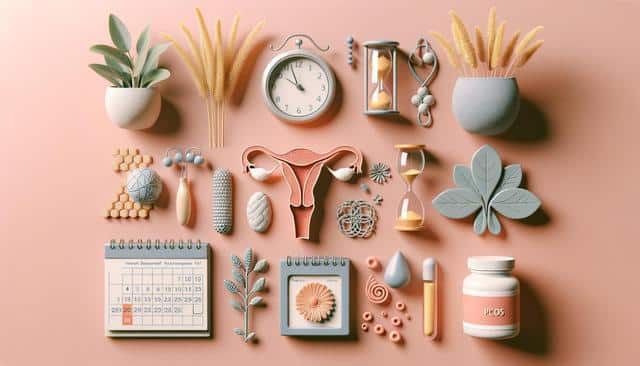
What Every Woman Should Know About Hormones
The Role of Hormonal Balance in Women’s Health
Hormonal balance plays a foundational role in nearly every aspect of a woman’s physical and emotional health. Hormones act as chemical messengers that regulate processes such as metabolism, mood, reproduction, sleep, and more. When hormone levels are stable and in sync, the body functions optimally. However, imbalances can lead to a variety of symptoms that affect quality of life. These include fatigue, mood swings, irregular periods, weight changes, and disrupted sleep patterns. Factors such as stress, diet, age, and underlying health conditions can all influence hormonal balance, making it a dynamic part of a woman’s health journey.
Recognizing the signs of imbalance early can lead to quicker interventions, often through lifestyle modifications or medical support. Key hormones to be aware of include estrogen, progesterone, testosterone, insulin, and cortisol. Each plays a unique role and can impact areas like fertility, skin health, and emotional well-being when not in harmony.
Maintaining hormonal balance involves a combination of healthy habits, such as:
- Eating nutrient-dense foods that support hormone production
- Managing stress through mindfulness or therapy
- Getting regular physical activity
- Ensuring adequate sleep and rest
Understanding how these factors interconnect helps women make informed decisions about their health and well-being.
Perimenopause: Navigating the Transition
Perimenopause is the transitional phase leading up to menopause, typically beginning in a woman’s 40s but sometimes earlier. During this time, the body gradually produces less estrogen, which can lead to noticeable changes in menstrual cycles and overall health. Women may experience irregular periods, hot flashes, night sweats, mood changes, and sleep disturbances. These symptoms can vary widely in intensity and duration, making it important to recognize the individuality of each woman’s experience with perimenopause.
Understanding perimenopause empowers women to better manage their symptoms and prepare for the next stage of life. Some strategies that can support this transition include:
- Tracking menstrual cycles to monitor changes
- Consulting healthcare providers for hormone level testing
- Exploring non-hormonal and hormonal treatment options
- Building a supportive network of peers or counselors
Perimenopause is not just a biological shift; it’s also an emotional and psychological journey. Awareness and early intervention can ease the transition and support long-term hormonal balance.
Polycystic Ovary Syndrome (PCOS): A Complex Hormonal Condition
PCOS is a common hormonal disorder that affects an estimated 1 in 10 women of reproductive age. It is characterized by irregular periods, high levels of androgens (male hormones), and polycystic ovaries. However, PCOS is more than a reproductive issue—it also impacts metabolic, cardiovascular, and mental health. Common symptoms include acne, weight gain, excessive hair growth, and fertility challenges, all of which are linked to hormonal imbalances.
Because PCOS presents differently in each individual, diagnosis and treatment can be complex. Managing PCOS often requires a multidisciplinary approach that includes:
- Personalized nutrition plans to support insulin sensitivity
- Regular physical activity to regulate hormones
- Medication to control symptoms and support ovulation
- Mental health support to address anxiety or depression
Understanding PCOS is crucial for long-term management and improving quality of life. With proper care, many women with PCOS can achieve hormonal balance and mitigate the associated health risks.
Supporting Period Health Through Every Stage
Period health is a vital indicator of overall well-being, yet many women are unaware of what constitutes a healthy menstrual cycle. A regular cycle typically lasts between 21 to 35 days, with bleeding lasting 2 to 7 days. Variations can signal underlying hormonal imbalances or health issues such as thyroid disorders, PCOS, or perimenopause. Tracking cycles can provide helpful insights into hormonal health and guide conversations with healthcare providers.
To support period health, women can adopt lifestyle choices that promote hormonal balance. These include:
- Ensuring adequate iron and magnesium intake
- Limiting processed sugars and refined carbohydrates
- Staying hydrated and engaging in moderate exercise
- Addressing chronic stress and sleep quality
Period-related symptoms such as severe cramps, excessive bleeding, or missed cycles should not be ignored. These can indicate hormonal disruptions or other conditions that require medical attention. Proactive care and education around period health can lead to earlier diagnoses and more effective treatments.
What Every Woman Should Know About Hormones
Hormones are not just about reproduction—they influence countless systems in the body, including digestion, brain function, skin health, and energy levels. Yet, many women are not taught how to interpret their body’s hormonal signals. Understanding the basics of hormonal balance, as well as the changes that occur during phases like perimenopause or with conditions such as PCOS, equips women to take control of their health.
It’s important to recognize the interplay between various hormones and how lifestyle, stress, and environmental factors can influence their function. Women should feel empowered to:
- Seek testing when experiencing unexplained symptoms
- Advocate for comprehensive evaluations, not just quick fixes
- Explore natural and clinical treatment options
- Stay informed through credible sources and ongoing education
By understanding what hormonal balance means and how it affects everything from period health to long-term wellness, women can navigate these changes with confidence and clarity.
Conclusion: Empowering Women Through Hormonal Awareness
Hormonal health is a dynamic journey that changes with age, lifestyle, and life circumstances. Whether navigating perimenopause, managing PCOS, or simply seeking better period health, understanding hormonal balance is key. Every woman deserves access to reliable information and supportive care that respects her individual experience. By being proactive, staying informed, and seeking appropriate guidance, women can take meaningful steps toward achieving hormonal harmony and improving their overall well-being.


